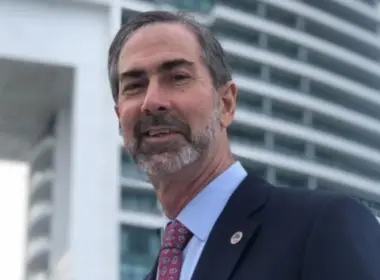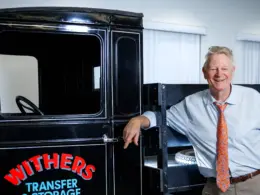How a real estate developer from Lebanon found new success in Miami
By J.P. Faber
For Polaris Realty Capital CEO Ziyad Mneimneh, his firm’s investment strategy is both simple and profound: There will always be demand for decent, non-nonsense housing for America’s workforce, regardless of other economic factors.
People will always need somewhere to live and the demand for multifamily housing will not disappear,” says Mneimneh, whose firm has structured investments valued at just short of $2 billion since it started the Polaris investment platform in Miami in 2012. In that time Polaris has acquired, and now mostly sold, some 12,000 units, using capital from investors in the Middle East and Europe, and in partnership with established regional & national US apartment operators.
The formula for Polaris is to acquire and refurbish professionally-managed rental communities with at least 250 units, largely in the Southeast U.S. and Texas – places like Atlanta, Austin, Dallas, Gainesville, Houston, Jacksonville, Orlando, San Antonio, Tampa, and Washington, DC. “In a nutshell, we’re a private equity real estate platform that connects international capital to U.S. multifamily real estate investments, which means whole apartment communities.” Investors enjoy both an annual return and a final bump when properties are sold. “Over the past decade we’ve been generating an average 8 percent [annual] cash yield, and an IRR in the upper teens [upon sale of the property].”
Mneimneh says that Polaris looks at a few hundred deals annually, moving forward with only one in twenty. Last year, however, the firm was busier selling than buying due to skyrocketing housing prices. “We were happily selling, but made only two acquisitions in the first half of 2022, which is low for us,” he says. “because asking prices had not adjusted to the new context of elevated interest rates, assets were too overpriced.”
Fortunately, the post-Covid nationwide jump in real estate demand, which drove prices up, is now trending otherwise, thanks to rising interest rates. “Since late last year, valuations have been going down because cost of debt is going up… the cost of debt consumes most of the projected cash flow.” For that reason, Polaris is now structuring its deals with more equity and less debt – from their previous models of 30 percent equity to about 50 percent equity.
Their loans still come largely from Fanny Mae and Freddy Mac, the federal home mortgage corporations whose mission is to make homeownership affordable, by maintaining liquidity of the residential mortgage market. “Their agenda is that middle-class multi-family housing remains liquid and affordable,” says Mneimneh. For example, “if your tenants have a lower average income, Fannie & Freddie give you more favorable debt terms.”
For Mneimneh personally, relocating to Miami was not part of the plan. His “long and tortuous story,” as he calls it, started with his parents completing their medical education in Boston before moving back to their native Lebanon, where he was born. In the 1970s, when the Lebanese civil war broke out, they settled in Miami at the encouragement of close friends. Mneimneh came with them, attending the University of Miami, then graduate school at Columbia University in New York. He was an architect with a multinational design group that posted him in various European cities, before moving to Saudi Arabia and eventually becoming a developer of single-family residential communities.
Mneimneh might have remained there, but when his second son was diagnosed with autism, he felt the U.S. was the best place to come for treatment. Because his parents were already here, he moved to Miami. After a fitful start (thank you 2008 housing collapse) he put Polaris squarely on route to its success in workforce housing, using capital from trusted sources in Saudi Arabia and Europe. Now Mneimneh says he is looking for more investors from the Americas.












